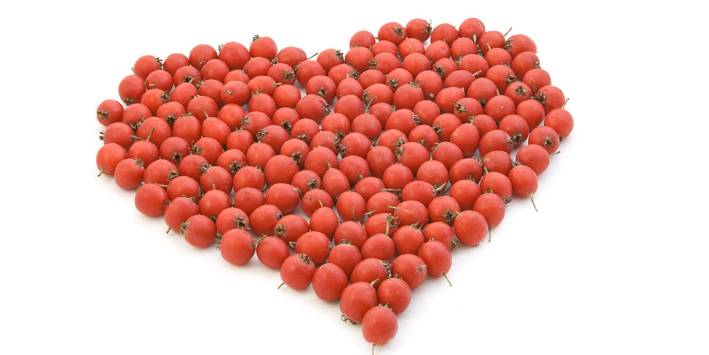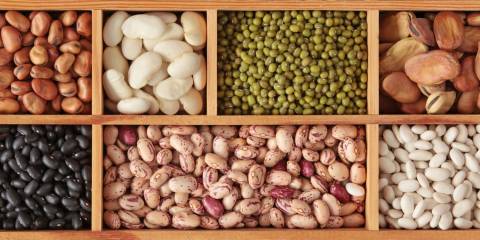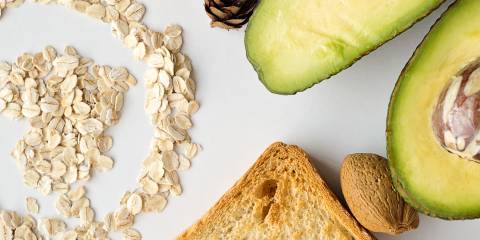Hawthorn (Crataegus oxyacantha) is a cardiotonic made from the leaves, flowers, and berries of the hawthorn tree.
It contains large amounts of antioxidant flavonoids, particularly oligomeric procyanidins (OPCs) and epicatechin. Hawthorn has long been used for digestive ailments, shortness of breath, and kidney stones.
Traditionally the fruits or berries, which contain astringent properties, were used for heavy menstrual bleeding and for diarrhea. Both the flowers and berries act as diuretics.
Congestive Heart Failure
Hawthorn’s major contemporary use is for congestive heart failure (CHF). There are different causes of CHF, but some of the most common include clogged arteries, damaged heart valves from previous heart attack, and high blood pressure.
The New York Heart Association (NYHA) defines four classes of heart failure:
- People with class I (NYHA I) show no symptom limitation with ordinary physical activity.
- In NYHA II, ordinary physical activity is somewhat limited by shortness of breath.
- In NYHA III, shortness of breath occurs with mild workloads such as short-distance walking and climbing one flight of stairs.
- In NYHA IV, people experience shortness of breath while at rest or with very little exertion.
Clinical Trials
More than a dozen clinical trials have investigated hawthorn’s effects on heart failure (some studies used hawthorn as an adjunct to conventional treatment), and this herb effectively reduced symptoms in people with NYHA I, II, and III.
Hawthorn increases contraction strength of the heart, improves blood vessel integrity, decreases low-density lipoprotein (or “lousy”) cholesterol, and improves blood flow in the heart and its ability to use oxygen. In a placebo-controlled, randomized, parallel group, multicenter trial of 143 patients with diagnosed class II cardiac failure, participants received 30 drops of a standardized hawthorn extract or a placebo three times daily for eight weeks.
Testing showed an increase in exercise tolerance in the treatment group versus placebo. In a study of more advanced cardiac failure, investigators conducted a 16-week randomized, placebo-controlled clinical trial of a hawthorn extract, versus placebo, among 209 class III heart failure volunteers.
The extract (WS 1442) used was from the dried hawthorn leaves and flowers, standardized to 18.75 percent OPCs. Volunteers received 1,800 mg hawthorn extract, 900 mg hawthorn extract, or a placebo.
Therapy with 1,800 mg hawthorn extract significantly increased maximum tolerated workload during exercise compared to placebo. Adverse events were mild and included dizziness and vertigo. In one randomized, placebo-controlled, double-blind trial with hawthorn extract, 40 volunteers suffering from class II congestive heart failure were given hawthorn extract or a placebo.
Adverse-effects reports found hawthorn to be safe and well tolerated. Exercise tolerance in the treatment group increased by 10 percent while it decreased by nearly 17 percent in the placebo group.
A meta-analysis of eight randomized, placebo-controlled clinical trials involving more than 600 class I to III cardiac failure patients linked hawthorn supplementation as an adjunct treatment to a beneficial effect on heart failure parameters. Hawthorn was superior to placebo for exercise tolerance, improving shortness of breath, and fatigue.
Herb-Drug Interactions
Hawthorn may act in synergy with beta blockers and other hypotensive drugs. One clinical trial concluded that taking 450 mg of hawthorn extract twice daily did not interact with 0.25 mg per day of digoxin (a drug used to treat CHF). If you are taking any medications, however, consult a licensed healthcare professional who is knowledgeable in botanical medicine and pharmacology.
Suggested Dosage
Crataegisan, 30 drops three times daily
WS 1442, 240 to 1,800 mg a day, as recommended by a practitioner.




